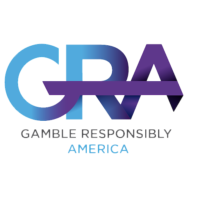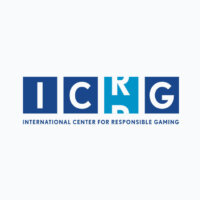If gambling leads to you calling out of work, missing deadlines, or neglecting responsibilities, it’s a sign that it is now overtaking a major part of your life
Responsible Gambling
At Lucky Gambler, our players always come first, which is why we’re huge proponents of responsible gambling. But, with so many social and real money online casinos popping up, it can be hard to stay away from unhealthy betting habits and unruly casinos. It’s our goal to provide you with accurate, verified, and updated information on casinos and their responsible gambling practices.
Do you want a casino that has an active responsible gambling program? Probably, you need resources on responsible betting or want to ensure your information stays safe and secure. It does not matter — we’re here to provide you with the knowledge and tools to do so! Lucky Gambler is your go-to for learning about responsible betting and gambling.
What Does It Mean to Gamble Responsibly?
Gambling responsibly means several things:
- being in control of your habits
- choosing the right casinos
- setting healthy limits
- not overspending while playing
Responsible gambling means being able to set boundaries, stick to them, and have fun while playing. If you feel stressed, depressed, or even hopeless, this is a sure sign that your playing strategies might be causing more harm than good.
Influence of Irresponsible Gambling
Spending paychecks or savings, not being able to pay bills on time, and becoming financially unstable due to gambling are all signs of the problem.
No one wants to see their loved ones struggle, but with problem gambling, it’s often hard to hide the consequences. Family members may start to notice missing money or reckless spending habits.
If you find yourself needing to commit crimes like stealing or illegally gambling to support your addiction, it’s a clear sign that this hobby has become an unhealthy habit.
Tips to Play Responsibly
Now that you know how vital it is to gamble responsibly, it’s time to learn some helpful tips and tricks to keep you in control of your betting. Follow these tips whether you’re playing at an online casino or in person.
- Set a BudgetDon’t let the excitement and poor spending habits ruin your budget. Use cash or a prepaid card for online gambling. Always set a budget with only money you can afford to spend after meeting your financial obligations.
- Time ManagementWhether you play in person or online, set a time limit for how long you spend playing your favorite games. Take a break by doing something relaxing to wind down your stress levels, or log off once you’ve hit your time limit.
- Don’t Chase WinsIt can be tempting to think you’ll win the next spin or bet, especially if you’ve hit a losing streak. However, don’t chase wins and try to recuperate lost money. Chalk it up to a loss and a part of the casino experience!
- Be Aware of the OddsHitting a winning or losing streak does NOT mean your next spin will be the next winner. Your odds of winning in the next round are always the same no matter how long you’ve been playing! The odds will always, in the long run, favor the house.
- Take BreaksWhile gaming is meant to be fun, it can also be stressful for some. Take breaks like stretching, breathing, or even interacting with family and friends so you won’t get tied up in making up lost money or betting your budget away.
- Don’t Play When You Are EmotionalWe understand — betting and gambling can be a great way to celebrate or unwind. However, you’ll need to learn to control your emotions and never place a bet while in a depressed or manic state.
- Don’t Play Under the InfluenceThere’s a reason Las Vegas casinos let the drinks flow freely for players. Alcohol and other substances can lower your inhibitions, give you a false sense of superiority, and lead to disaster. It’s also best to practice responsible drinking when betting.
- Use Responsible Gambling ToolsDeposit limits, time limits, and self-exclusion are all tools that can help you stay in control while gambling online or in person. These features will vary from platform to platform, but customer service can guide you in the right direction.
- Ask for HelpAsking for help is always a sign of strength, not weakness! We encourage players to ask for help from loved ones, help groups like Gambling Addicts or Gaming Addicts Anonymous, and trained counselors for assistance with the problem.
Tips on Spotting the Signs of Addiction
- Can’t stop thinking about gamblingWhile having a passion for playing cards or watching your favorite game of roulette might be healthy to a certain degree, constantly thinking about gambling and making plans to do so may be a sign of addiction. Ask yourself what your motivation is for this activity, and if you can't stop thinking about it due to an underlying addiction.
- Spending more and more time gamblingMost people only gamble as a pastime and can separate it as a healthy outlet for fun and socializing. However, those with an addiction will prioritize it above all else, spending more and more time on this activity instead of focusing on work, family, or other life goals.
- Going over the budgeSticking to a budget is sometimes tricky, but completely going over budget because you can't control your spending is a big red flag. If you find yourself constantly pushing your financial limits to fund your gambling habits, it may be time to seek help.
- Emotional changeHave you ever felt anxious at the thought of not being able to gamble, or gotten angry when someone suggested cutting back or stopping altogether? These are emotional changes that could indicate a deeper problem. If you notice these changes or other emotional issues like depression and isolation in a family member, it's crucial to seek counseling as soon as possible.
- Chasing lossesLosing is a part of the gambling experience, but it's important to know when enough is enough. Those with an addiction will continue chasing losses, believing that they just need one more win to break even or get ahead.
- Lying to othersLies are typical in any addiction. Gambling addiction can include lies about how much you gamble and spend, as well as even lying about where you are and what you're doing.
- Risking or losing important opportunitiesMissing important opportunities like job offers, family outings, and other important life events is an unfortunate byproduct of gambling addiction. Ask yourself if you're sacrificing the most important days of your life to gamble, and if so, get help!
- Problems with family, friends, or relationshipsThe victims of this addiction aren't just the person spending money, but also their loved ones. It's essential to recognize the impact your gambling has on those around you and seek help before it's too late.
- Borrowing money to playToday, funding an online casino account is easier than ever with so many payment methods available. However, this makes it easy for those with a gambling addiction to borrow money from friends, and family, or even take out loans to fund their habit.
How to Get Help?
While knowing you have a gambling addiction might seem scary, the good news is that there are plenty of resources you can use to get you started on the path toward recovery. These include the following:
Self-Exclusion
Self-exclusion means you enroll in a program voluntarily to limit your spending or gaming. These programs vary by states that allow legal real-money online gambling. Here are some of the many self-exclusion programs you can enroll in to help reduce your chances of overspending.

Connecticut’s self-exclusion program is easy to sign up for and fairly strict. Players can’t collect winnings, recover losses, or accept complimentary gifts and services from operators. One can sign up for self-exclusion or get help through the Consumer Protection, State of Connecticut Department of Gaming Division. The best way to sign up is in person at the State Consumer Protection Agency office in Hartford, CT. Once enrolled, casinos can choose to ban players from their sites in other states and countries.
Connecticut’s self-exclusion program
The Delaware Lottery Office is the main point of contact for players looking to set self-exclusion limits for one year, five years, or a lifetime. Self-exclusion means they voluntarily exclude themselves from all gaming activities at licensed Delaware video lottery agents, including The Casino at Delaware Park, Dover Downs Hotel & Casino, Harrington Raceway & Casino, and any online casino websites from these locations. Signing up can be done by calling the State Lottery office at (302) 739-5291. Players can also sign up in person at the Dover, DE office location, or sign an online PDF form. The form contains all terms and agreements, including forfeiture of potential future winnings from gambling.
Self-Exclusion Program
The Michigan Gaming Control Board oversees all online gambling activities, including self-exclusion, in the state. They have a Responsible Gaming Database that allows players to self-exclude from online betting. Players can be excluded for one or five years from internet gaming and online sports betting. After filling out the PDF, it needs to be emailed to the Control Board office at [email protected], dropped off in person, or mailed to the office. The process can be quite lengthy, with exclusion taking up to 45 days.
Michigan Gaming Control Board
New Jersey’s Division of Gaming Enforcement offers several methods of self-exclusion for players. NJ online casinos offer players the chance to easily sign up for and remove themselves from the self-exclusion list for internet gaming, but if done continuously, they are still subject to self-exclusion limits set by the casinos themselves. To register for Internet Self-Exclusion, players can call the Division of Gaming Enforcement at 1-833-788-4DGE to set up a video or in-person conference. Players can self-exclude in person at any New Jersey racetrack. Online forms are also available.
New Jersey’s Division of Gaming Enforcement
The Pennsylvania Gaming Control Board allows players to self-exclude from iGaming for 1, 5, or an infinite number of years. Players can also self-exclude from fantasy sports, in-person betting, and video gaming. To sign up for self-exclusion, visit the PGCB website or enroll by scheduling an appointment at a PGCB office or by visiting a PGCB office at a licensed facility. Call the Office of Compulsive and Problem Gambling at 717-346-8300 or email [email protected] to schedule an appointment for self-exclusion.
The Pennsylvania Gaming Control Board
The West Virginia Lottery is in charge of self-exclusion for all four West Virginia Racetracks and Casinos and the Greenbrier Casino. Players can fill out a form and mail it in to self-exclude for one year and will be subject to trespass if they attempt to enter any of these facilities. Mail the completed form to the West Virginia Lottery at 900 Pennsylvania Avenue Charleston, WV 25302, and have it notarized along with a valid ID. Or, you can complete the form in person in front of security personnel to avoid notary fees.
The West Virginia LotteryUse Self-Restriction Tools
If self-exclusion doesn’t seem like a good fit for you, there are other tools that can help you limit your gambling online. Here are a few of our favorites at Lucky Gambler.
Some players prefer to avoid the temptation to gamble by blocking online casino sites. With new sites popping up daily, Gamban makes it easy to avoid betting on platforms by blocking them from your devices.

Similar to Gamban, BetBlocker is a free app run by a charity in the UK to help people around the world limit gambling. It offers players a chance to block over 83,000 sites when they need it and offers parental controls too.

GameSense is a unique platform that is required in several casinos, like the MGM resorts in Massachusetts. Developed by the British Columbia Lottery Corporation (BCLC), GameSense offers resources to players to help them understand their odds and house advantages, as well as get help if they need to self-exclude through an advisor.

For players looking for an extra education resource, we recommend Gamble Responsibly America. This simple app allows players to examine their betting habits, see if they fall into the category of problem gambling, and get additional resources for problem gambling.

The Gambling Addiction Calendar app is as unique as it is fun and thought-provoking. Ever wonder how much time and money you’d save by not gambling? This app allows you to track just that, in addition to setting personalized motivators.
Official Support Services
The NCPG is the only national nonprofit organization, with a goal to minimize the economic and social costs associated with gambling addiction. It remains neutral on the legalization of online gambling.

GA, or Gamblers Anonymous, offers players support meetings and a network of former and current gambling addicts. It has locations nationwide.
Ran by Gordon Moody, Gambling Therapy offers both advice and emotional support for people addicted to gambling.

Gambling addicts can also benefit from mental health help through American Addiction Centers or AAC.

1-800-Gambler is run by The Council on Compulsive Gambling of New Jersey, Inc. (Council), a private non-profit organization dedicated to educating the public on problem gambling and getting them help.

The Substance Abuse and Mental Health Services Administration offers resources, education, and other public health efforts across the nation. It is an agency within the U.S. Department of Health and Human Services.

Founded in 1996, the ICRG aims to study and explore gambling disorders and responsible gambling.
State-Level Resources
| State | Phone | Website |
|---|---|---|
| Alabama | 1-334-277-5100 | https://alccg.org |
| Alaska | 1-800-522-4700 | https://dhss.alaska.gov/ |
| Arizona | 1-800-777-7207 | https://www.azccg.org/ |
| Arkansas | 1-800-522-4700 | https://www.arpgcouncil.org/ |
| California | 1-800-522-4700 | https://www.calpg.org/ |
| Colorado | 1-800-522-4700 | https://www.problemgamblingcoalitioncolorado.org/ |
| Connecticut | 1-888-789-7777 | https://www.ccpg.org/ |
| Delaware | 1-888-850-8888 | https://www.deproblemgambling.org/ |
| District of Columbia | 1-800-522-4700 | https://www.ncpgambling.org/ |
| Florida | 1-888-236-4848 | https://www.gamblinghelp.org/ |
| Georgia | 1-800-522-4700 | https://www.ncpgambling.org/ |
| Hawaii | 1-888-236-4848 | https://www.ncpgambling.org/ |
| Idaho | 1-800-522-4700 | https://www.ncpgambling.org/ |
| Illinois | 1-800-522-4700 | https://www.icpg.info/ |
| Indiana | 1-800-522-4700 | https://www.indianaproblemgambling.org/ |
| Iowa | 1-800-522-4700 | https://www.ncpgambling.org/ |
| Kansas | 1-800-994-8448 | https://www.ksproblemgambling.org/ |
| Kentucky | 1-800-522-4700 | https://www.kycpg.org/ |
| Louisiana | 1-800-522-4700 | http://www.helpforgambling.org/ |
| Maine | 1-800-426-2537 | https://www.maineproblemgambling.org/ |
| Maryland | 1-877-770-7867 | https://Marylandproblemgambling.org |
| Massachusetts | 1-800-522-4700 | https://www.masscompulsivegambling.org/ |
| Michigan | 1-800-522-4700 | https://www.michapg.com/ |
| Minnesota | 1-800-522-4700 | https://www.mnapg.org |
| Mississippi | 1-800-270-7117 | https://www.msgambler.org/ |
| Missouri | 1-800-333-4673 | https://www.ncpgambling.org/ |
| Montana | 1-888-777-9696 | https://www.mtproblemgambling.org/ |
| Nebraska | 1-800-522-4700 | https://problemgambling.nebraska.gov/ |
| Nevada | 1-888-900-9979 | https://www.nevadacouncil.org/ |
| New Hampshire | 1-833-238-6837 | https://nhproblemgambling.org/ |
| New Jersey | 1-800-522-4700 | https://www.800gambler.org/ |
| New Mexico | 1-603-724-1605 | https://councilonproblemgambling.com/ |
| New York | 1-800-246-2537 | https://www.nyproblemgambling.org/ |
| North Carolina | 1-888-696-2440 | https://www.nccouncilpg.org/ |
| North Dakota | 1-877-846-7369 | https://www.ncpgambling.org/ |
| Ohio | 1-800-522-4700 | https://www.pgnohio.org/ |
| Oklahoma | 1-800-522-4700 | https://www.oapgg.org/ |
| Oregon | 1-800-589-9966 | https://www.opgr.org/ |
| Pennsylvania | 1-800-522-4700 | https://www.pacouncil.com/ |
| Rhode Island | 1-877-695-4648 | https://www.ricpg.com/ |
| South Carolina | 1-800-522-4700 | https://www.ncpgambling.org/ |
| South Dakota | 1-877-942-6253 | https://www.ncpgambling.org/ |
| Tennessee | 1-800-522-4700 | https://www.ncpgambling.org/ |
| Texas | 1-800-522-4700 | https://www.ncpgambling.org/ |
| Utah | 1-800-522-4700 | https://www.ncpgambling.org/ |
| Vermont | 1-800-522-4700 | https://www.ncpgambling.org/ |
| Virginia | 1-800-522-4700 | https://www.vacpg.org/ |
| Washington | 1-800-547-6133 | https://www.evergreencpg.org/ |
| West Virginia | 1-800-522-4700 | https://www.ncpgambling.org/ |
| Wisconsin | 1-800-426-2535 | https://www.wi-problemgamblers.org/ |
| Wyoming | 1-800-522-4700 | https://www.wyomingcpg.org/ |
Online casino games, slots, and iGaming are a fun way to unwind and relax. But if it feels like more stress on top of your life, stop and get help right away. Any of these resources above are excellent tools you can use to arm yourself and recover from gambling addiction. We at Lucky Gambler are here to support you every step of the way by continuing to provide high-quality resources for safe gambling sites and knowledge articles to empower you.
Here is a survey consisting of 12 questions to identify problems with gambling
Here is a survey consisting of 12 questions to identify problems with gambling
If you scored in this range, you may be experiencing a significant amount of gambling-related problems. Even if you’re just starting to notice your gambling becoming an issue, there are steps you can take to get help – and you’ve already started. Just taking this quiz is a huge step. The next step is talking to someone. You can even do so anonymously and free of charge. You don’t need to feel alone.
If you scored in this range, you may be experiencing a significant amount of gambling-related problems. Even if you’re just starting to notice your gambling becoming an issue, there are steps you can take to get help – and you’ve already started. Just taking this quiz is a huge step. The next step is talking to someone. You can even do so anonymously and free of charge. You don’t need to feel alone.
If you scored in this range, you may be experiencing a significant amount of gambling-related problems. Even if you’re just starting to notice your gambling becoming an issue, there are steps you can take to get help – and you’ve already started. Just taking this quiz is a huge step. The next step is talking to someone. You can even do so anonymously and free of charge. You don’t need to feel alone.
FAQ
Is gambling bad for you?
Gambling alone might not be inherently bad for everyone, but it can have negative consequences if it becomes an addiction. Keep track of your gambling habits and seek help if you feel like it’s becoming a problem.
Are there ways to prevent problem gambling?
It’s hard to say since addiction is a disease that has many factors, including genetic, social, and environmental. However, being aware of your habits and setting limits for yourself can help prevent problem gambling from developing.
How can I get help with a gambling problem?
Using the resources we outlined above, contacting state or local gambling or substance abuse resources, and seeking mental health help can all be great ways to get started recovering from gambling addiction.
What are the best ways to practice responsible gambling?
Setting budgets, knowing when to stop, and taking breaks are all great ways to practice responsible gambling. Additionally, being aware of your emotions and seeking support if needed can also help you gamble responsibly.
